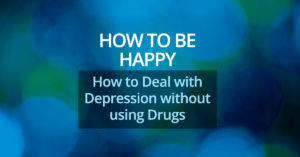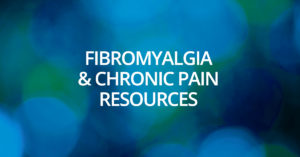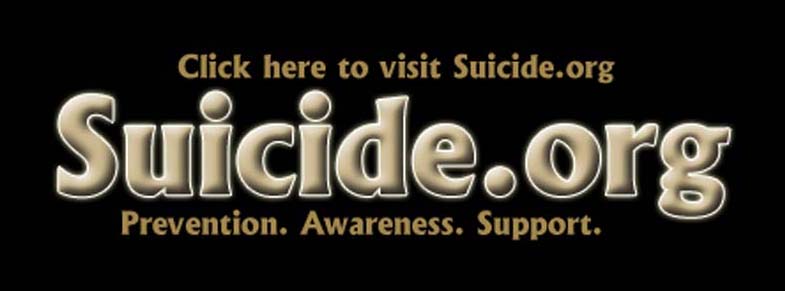DISCLAIMER: THIS IS NOT MEDICAL ADVICE! We do not employ doctors or licensed medical professionals, so we do not provide medical advice. Nothing presented here is a substitute for the advice of a DOCTOR or other licensed health care provider. Never stop, start or add medications or supplements to your health or mental health care regime without first checking for interactions or other problems, and thoroughly researching the substance. Before you employ any information here, consult your health care professional. No information here is the result of valid clinical trials.
Self-Advocating With Your Doctor
When we see the doctor, we start at a disadvantage.
We are often at fault. We do not research. We do not copy evidence and have it ready. We do not plan ahead.
We do not ask for reinforcements. We accept advice, instructions, commands even, without discussion, without thought, without approval.
That is not to say we are weak. But we are often ignorant - where ignorant means "we do not know" - any more than the doctor does. We lack authority - where authority means knowing something and being able to produce the evidence confidently and with conviction.
We lack time. And we lack status. We lack the inner strength which often comes with good health. We lack the strength which comes from being on our own territory. We are faced with someone who has trained in the specialism that can affect our very sanity and life.
We start with a massive disadvantage.
But we can overcome that disadvantage by doing this: research, plan, rehearse and perform
Start with this: work on your Knowledge, Understanding and Attitude
Remember: this is YOUR body and brain and YOU need to advocate for yourself.
Carry out lots of research on HealingAmericaNow:
-
- Download the "Contents" list; then highlight and work through as many files as you think are relevant to this particular consultation.
-
- Print off the files or sections of files you think are really important to your knowledge and understanding. This will all improve the positivity of your attitude as well.
-
- Copy the most important quotes and paste them into a new document. Detail which original document they come from and the page number so you can refer back if you need to.
-
- Search Google for articles relating to anti-depressants in your country. The US and UK have both had plenty. You just need to find them. Make a post and ask for anything new anyone has heard or read.
-
- This file in CHW on FB has up-to-date links from 2021 which will help. https://www.facebook.com/groups/Cymbaltahurtsworse/permalink/2096863263802744
Now do this: plan carefully in detail
Use all that knowledge and understanding to plan your strategy
Decide exactly what points you want to discuss in the consultation. You may want to post on CHW to help you think clearly.
-
- Write - preferably word-process - in advance exactly what you are concerned about. Be realistic about what you can cover in the time available. Again, ask for support if you wish.
-
- Make it 100% clear what outcomes you are looking for. Be realistic. Be ready to compromise but not to be compromised. You may need to be flexible on some points.
-
- Put clear headings on each section and number the pages. Make sure you know what all the pages are for. Some will be just evidence and probably not needed in the consultation. Put them at the back. Annotate by hand if that helps. You need to know what you are taking and how to find it when you need to refer to it.
-
- Print it out in larger-than-normal size. Then it will be easier to follow when you are under pressure.
-
- Do a copy for you and your doctor and 2 spares.
-
- Take one copy in to the surgery 3 or 4 days in advance, clearly addressed to your doctor.
-
- If at all possible, take someone with you for the consultation to give moral support. Give them the spare copy and talk them through it so they understand what their role is.
Now do this: rehearse and learn
Use all the planning, and the detailed knowledge and understanding to boost your confidence
In the days before the consultation, practise your role. Think through the key points. Remind yourself what evidence you have. Be very clear in your own head what outcomes you want. You cannot trust the doctor to have genuine knowledge of your condition. It is most likely they will be ignorant and - if you let them - dangerous. Just accept this. Carrying anger, resentment and blame will not help your case.
You are going to an interview. You know the outcomes you are looking for and the doctor is the interviewee who has to provide them.
Last steps in your preparation
Time to dress, arrive and settle in, ready for whatever comes next
As you would for an interview, dress smartly. Dress so you feel confident and in control. Do NOT go in looking as though you can't cope. Go in dressed as someone who is a go-getter. Suit, if possible. No scruffy jeans and trainers.
Be punctual - no! Be early (not too early!) at the surgery and be friendly. Often an effort, I know. But: be friendly. Check whether your doctor is running on time. Just so you know. If not, smile and say thank you anyway. Running late gives you more chance to feel in control and gives the doctor less time to waste when you get in there. Ask for the toilet - this is another chance to be friendly and to use your voice. Wander around the space and make yourself feel comfortable.
Remind yourself that it is YOUR body and brain and YOU are about to advocate for yourself. Remind yourself that you know your body and brain better than any doctor. That you have done the research and know why you are there. Be absolutely clear what outcomes you want.
If you have support with you, just be comfortable together.
Finally, take the stage for your performance
Time to wow the doctor with your clarity, knowledge, understanding and obvious inner strength
Thank the doctor for seeing you today. Ask if they have the copy you sent 3 days ago; or do they need your final copy?
If it is legal in your country (Check in advance!), record the conversation on your phone. "I'm going to record this, as my memory isn't too good. I hope you don't mind, Doctor." Put the phone away so neither of you think about it.
A really amusing doctor will ask "So, what can I do for you?" and that's when you smile and say "It's on page 1. The list of outcomes I would like from this consultation." And a serious doctor will ask the same thing as that is how doctors usually start. You can smile anyway!
Keep the focus on what you want and why.
Remember you have evidence and it is your body and brain. YOU are in charge of this. YOU can get up and stroll around if you want; the doctor will never do that. YOU can throw a remark to your companion; the doctor won't.
Be very clear if they don't agree with you. "I'm sorry, but that really will not work." Remind them that you have researched the subject and gone through the experiences. "I'm sorry, but it does seem there is no such things as a chemical imbalance. I really will not accept that idea."
Be clear and be determined.
Make notes on what you are told and on what you agree to do. Make it a joint agreement: "we" if you can. Use the notes to ask any questions you need to.
Jot down notes even if you don't need to - it helps focus the mind and puts you in control. You are the active one, the doctor is passive.
Do not on any account add any more drugs. Even one psychotropic drug in a lifetime is too many. You are not there to be experimented on.
Keep an eye on the time allocation. This might be a good way to get what you want.
The rest is up to you, the doctor, fate, and the unknown.
Whatever happens, next time you will be even stronger. You will have had more practice. Maybe next time you will try and get a younger, less arrogant and set in their ways doctor. Maybe you have got exactly what you want. I hope that whatever has happened, you will have had the strength to refuse anything even more dangerous and to show yourself that you can do this.
HEALTH WARNING: You will be exhausted after this.
Win or lose, you will need time to recover. Be kind to yourself.
Cymbalta and Pregnancy
DISCLAIMER: THIS IS NOT MEDICAL ADVICE! We do not employ doctors or licensed medical professionals, so we do not provide medical advice. Nothing presented here is a substitute for the advice of a DOCTOR or other licensed health care provider.…
Read MoreCHW FAQ and Key Definitions
These are simple questions, mostly with short answers. The key words will help you search the “CHW Files” list for documents giving more detail. Use the “Search” box on the CHW FB page to see what others have said about (key word) and see what they have experienced.
Read MoreCHW How To Be Happy
How to deal with depression – without using drugs. These suggestions are from various sources and my belief is that doing something different or extra will help. Thank you, all those who wittingly or unwittingly helped me compile this list.
Read MoreCHW Fighting Insomnia
Fighting insomnia with a better sleep environment and routine
Two powerful weapons in the fight against insomnia are a quiet, comfortable bedroom and a relaxing bedtime routine. Both can make a big difference in improving the quality of your sleep.
CHW Fibromyalgia and Chronic Pain Resources
Alternatives to Drugs for Fibromyalgia, Chronic Pain and Other Chronic Health Problems. Contrary to what the public is being led to believe, there are natural, effective treatments for fibromyalgia (FM) and chronic pain.
Read MoreCHW Posting & Journaling Your Taper
When you post, help us to support you. We need the full picture. For us to help you properly when you post, we need that information. So it is very important to keep a journal while tapering.
Read MoreLooking for help with something?
Search our site below...
Please take the time to report your adverse symptoms from Cymbalta and Cymbalta withdrawal to the FDA. Call 1-800-332-1088 ![]()
© 2019 Healing America Now








